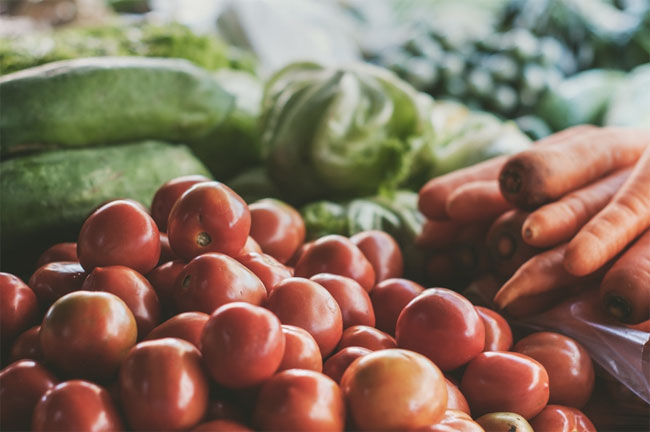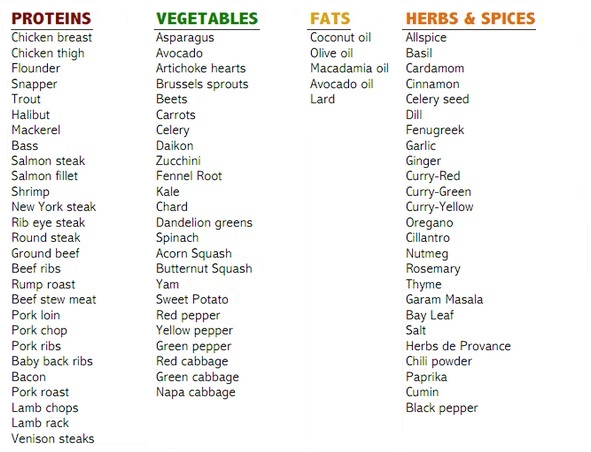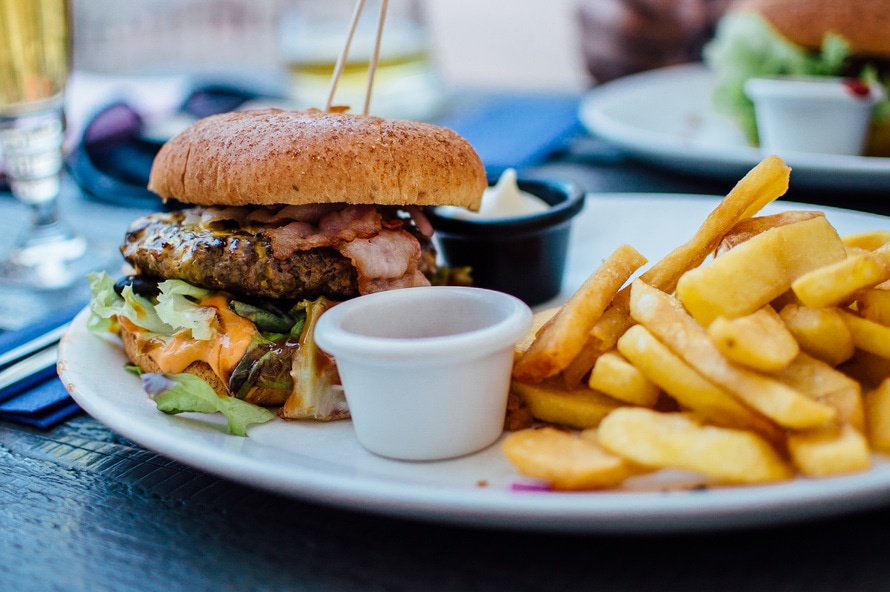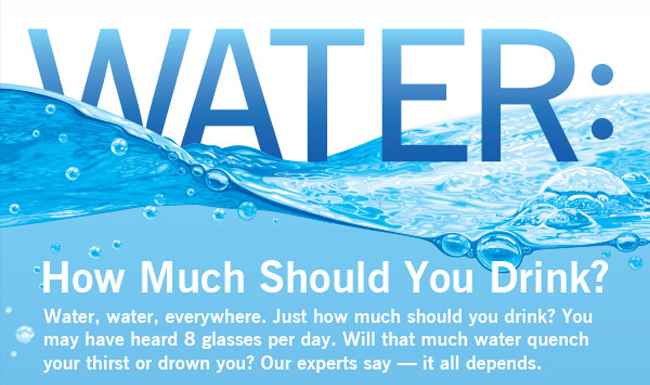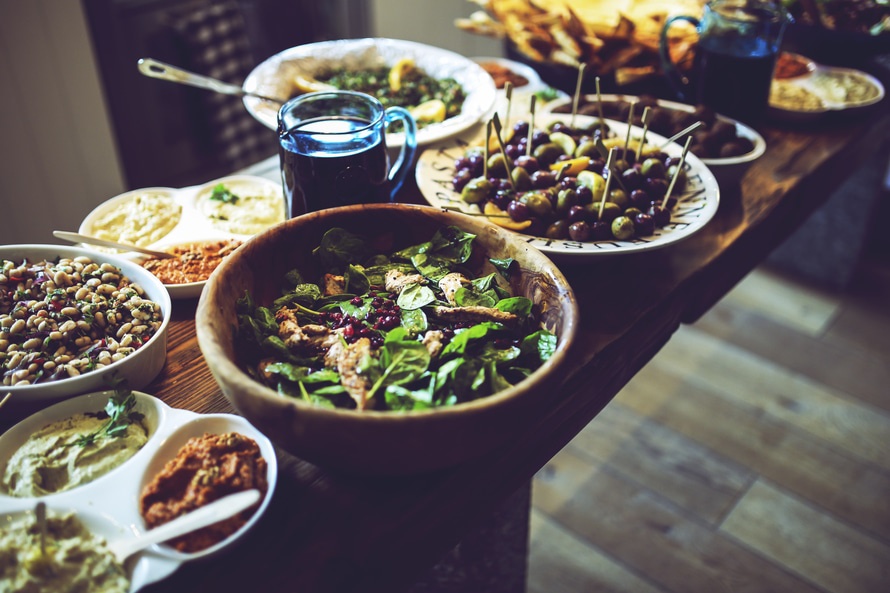The elements of the Paleo diet is quite simple. Eat clean and eat well.
This means, removing tertiary processed food from your diet.
The word Paleo comes from the word Paleolithic, an era that ended about 10,000 years ago. Paleo Diet has garnered a lot of attention and controversy for the past years and is based on the assumed way of eating of the hominid species in that era.
Paleo Diet is all about avoiding food that causes deflects our body’s natural metabolic process, refraining from toxic and inflammatory causing food such as grains, legumes and sugar that contains gluten. Restraining intake of processed food. Replace them instead with unprocessed, nutrient packed food, grass fed meat, pastured poultry, seafood harvested in their natural habitat and as much as possible organic vegetables although fruits and nuts should be taken in at a balance.
How to get started going Paleo?
 If you’re up for the Paleo diet, try it for 1 week, extend the days as you go. It might take a while to eliminate one processed food at a time and this may be a difficult process but it would help if you slowly rid of everything in your kitchen that does not belong to the Paleo food list.
If you’re up for the Paleo diet, try it for 1 week, extend the days as you go. It might take a while to eliminate one processed food at a time and this may be a difficult process but it would help if you slowly rid of everything in your kitchen that does not belong to the Paleo food list.
It would help if you find a Paleo community in your area where you can meet up, exchange ideas, talk you through challenges and mainly – just for support. Keep in mind though that you are not in a strictly low carbohydrate diet, so indulge in a Paleo dessert or sweet potato often.
“If you are turning to Paleo to lose weight, maintain all of your muscle mass, start your meals with a decent amount of protein, eat as many low GI vegetables as you can, then have a little bit of fruit or starch from squash or sweet potatoes. That’ll make you full, but you’re not eating a ton of calories,” says Robb Wolf.
Here are some reported benefits that people felt and experienced on Paleo Diet…
- Elevated and enduring energy level
- Continued weight loss
- Skin is clearer and healthier hair
- Mental clarity, better temperament and sleep
- Improved frame of mind or mental perception
- Muscle growth; increased fitness
- Higher immune function and a general feeling of well being
- Improved glucose tolerance
- Improved lipid panel
- Better absorption of food
- Reduced allergy symptoms and effects
- Lessens pain associated with inflammation
So what foods are okay on the Paleo Diet?
Here is a Paleo Food Guide for quick reference…
As you get going, there may be some new terms and ideas that you come across.
Here are some terms you might encounter with Paleo…
- Grass-fed Beef: Cows are supposed to eat grass, what cows eat have an effect on the nutrient composition of the beef.
- FODMAP : A group of short chain carbohydrates and monosaccharides that some people have trouble digesting (garlic, onions, avocado, beets, mushrooms, apples, and more)
- IF : Intermittent fasting. Eating during a limited number of hours per day (often 8 hours) or fasting on a regular basis, often one day per week.
- Faleo Diet: Doing the paleo diet, but doing it wrong
- GMO: Genetically Modified Organism
- CO: Coconut oil – a favorite oil and fat
To learn more terms, check out the Paleo Glossary.
Try a few Paleo Recipes…
The fun part is discovering new Paleo recipes and experiment mixture of the available food and ingredients. Here are a few easy recipes we roundup to start working with:
- Spinach and Bacon Frittata
- Thai Chicken Wings
- Paleo Chilli in the Slow Cooker
- Stuffed Avocado with Garlic Shrimp
- Grilled Chicken with Rosemary and Bacon
Paleo Diet is more of a nutrition lifestyle, when starting with Paleo,you have to be ready for challenges and trials. The thought of frequently getting rid of food that you are used to and filling in that void can be intimidating. It is important that you know how your body works with you daily diet, evaluate and plan on the net step. If you feel like your food intake is not digesting well and your sugar level is off – then count out specific food or make proper adjustments.
Paleo lifestyle may or may not be for you, a good deal of the issues associated with most diets or food guides fall into the sort of over-consumption and consuming too many processed food.
Just a friendly reminder, before changing your diet make sure you consult with your physician or a registered dietitian.

